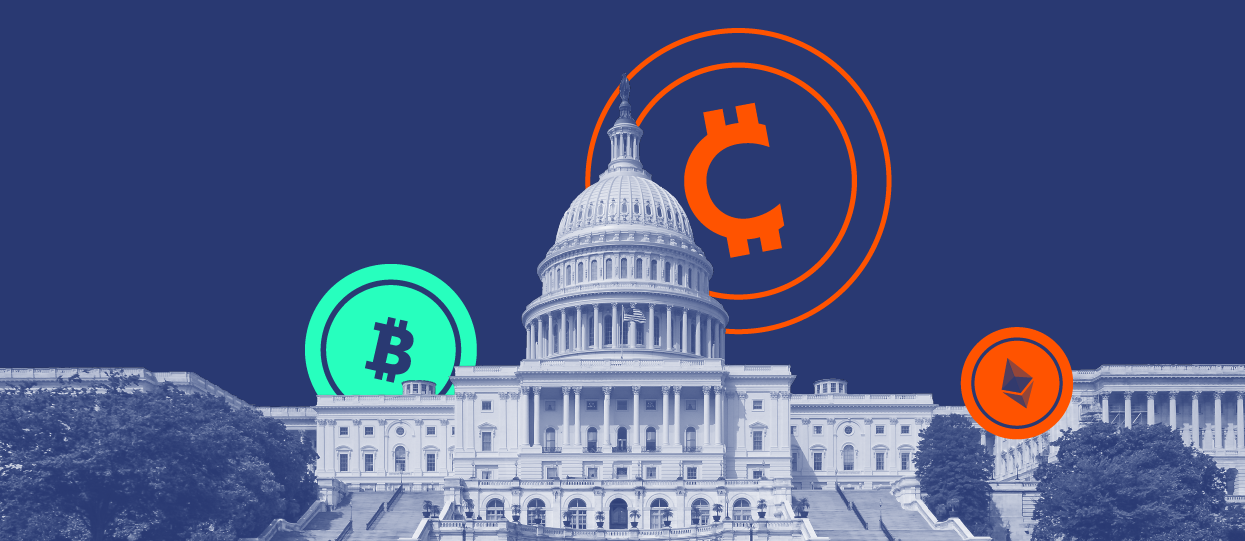Episode 27 of Public Key, the Chainalysis podcast, is here! In this episode, we talk with Alma Angotti (Partner, Financial Services Global Legislative and Regulatory Risk Leader at Guidehouse) about the evolving regulatory landscape in the USA and the impact it’s having on innovation.
You can listen or subscribe now on Spotify, Apple, or Audible. Keep reading for a full preview of episode 27
Public Key Episode 27 Preview: Get the regulators’ perspective on crypto and innovation
With the action picking up in the White House and across the regulatory landscape in the USA, in this episode of Public Key, Ian Andrews ( (Chief Marketing Officer, Chainalysis) has a deep discussion with former regulator, Alma Angotti, who is now Partner, Financial Services Global Legislative and Regulatory Risk Leader at Guidehouse.
Alma goes through her career working at the SEC, FINCEN and FINRA, and gives us her unique insights as to why regulators have to be cautious when approaching crypto and innovation. Ian and Alma have the age-old debate as to whether crypto is a commodity or a security and the impact that would have on regulatory oversight by the CFTC and SEC.
Alma even throws in a twist in the Tornado Cash saga and explains why the Department of Commerce could have taken the lead on the sanctions of technology and provides some possible outcomes to the situation.
Quote of the episode
“People like to criticize the regulators a lot. Now granted, I have spent 25 years in regulatory enforcement roles, so I do have a little bias, but they do have to be careful that they don’t come in too hot and really either overreact to something that’s not going to develop into an important market presence or that they really do cut down innovation.So I think that’s why they’re cautious and you’ll see that the cases that the CFTC and the SEC brought really are just fraud.” – Alma Angotti (Partner, Financial Services Global Legislative and Regulatory Risk Leader – Guidehouse)
Minute-by-minute episode breakdown
- (3:05) – What is Guidehouse and Alma’s first interaction with cryptocurrency
- (5:50) – Why governments have to be careful not to come in too hot with crypto regulations
- (10:20) –Traditional Financial Institutions and how they are entering the crypto ecosystem
- (13:30) – The role that the various USA regulators play in the oversight of digital assets
- (17:25) –The burning debate of whether cryptocurrency is a commodity or a security
- (24:25) –Why the Department of Commerce should taken the lead to sanction decentralized mixer, Tornado Cash
- (29:35) – The balance between privacy and compliance and the role CBDCs could play in the USA financial ecosystem
Related resources
Check out more resources provided by Chainalysis that perfectly complement this episode of the Public Key.
- Blog: Breaking Down the White House Framework on Crypto
- Article: October is now the biggest month in the biggest year ever for hacking activity.
- Blog: Managing Financial Crime Risk in the “Wild West”
- Blog: Crypto Criminals Can’t Hide—Investigative Blockchain Technology Sniffs Out Illicit Activity
- Blog: New NYDFS Guidance Emphasizes Need for Blockchain Analytics
- Blog: White House Sets Stage for Responsible Digital Asset Innovation
Speakers on today’s episode
- Ian Andrews * Host * (Chief Marketing Officer, Chainalysis) https://www.linkedin.com/in/ianhandrews
- Alma Angotti (Partner, Financial Services Global Legislative and Regulatory Risk Leader at Guidehouse) https://www.linkedin.com/in/almaangotti
Please note that Guidehouse is a partner of Chainalysis.
This website may contain links to third-party sites that are not under the control of Chainalysis, Inc. or its affiliates (collectively “Chainalysis”). Access to such information does not imply association with, endorsement of, approval of, or recommendation by Chainalysis of the site or its operators, and Chainalysis is not responsible for the products, services, or other content hosted therein.
Our podcasts are for informational purposes only, and are not intended to provide legal, tax, financial, or investment advice. Listeners should consult their own advisors before making these types of decisions. Chainalysis has no responsibility or liability for any decision made or any other acts or omissions in connection with your use of this material.
Chainalysis does not guarantee or warrant the accuracy, completeness, timeliness, suitability or validity of the information in any particular podcast and will not be responsible for any claim attributable to errors, omissions, or other inaccuracies of any part of such material.
Unless stated otherwise, reference to any specific product or entity does not constitute an endorsement or recommendation by Chainalysis. The views expressed by guests are their own and their appearance on the program does not imply an endorsement of them or any entity they represent. Views and opinions expressed by Chainalysis employees are those of the employees and do not necessarily reflect the views of the company.
